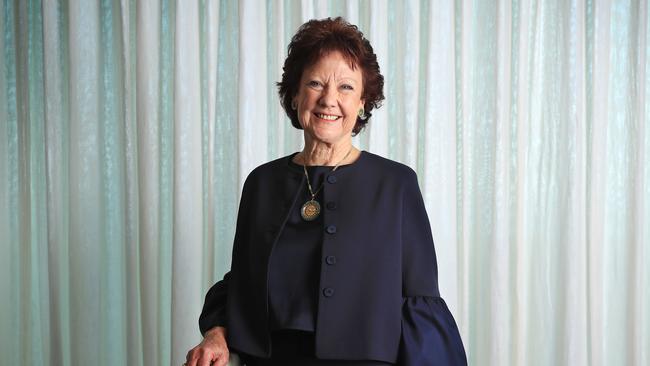AMP flags first strike amid growing investor tensions
The wealth manager has tried to address a litany of shareholder concerns at its annual meeting – from its falling share price and slow capital returns to its generous executive payouts.

AMP has been hit by a hefty “first strike” against its executive remuneration report, as investors lashed out over the wealth manager’s recent performance.
More than 49 per cent of shareholder votes were cast against the report, at AMP’s annual general meeting in Sydney on Friday.
The protest came after AMP promised to expedite its $1bn capital return to investors via a buyback of 500m shares as the wealth manager faces increasing disappointment over its share price performance and executive payouts.
In her speech to investors, chair Debra Hazelton addressed a litany of shareholder concerns, including over how AMP Super directs voting on climate resolutions.
She acknowledged the extreme disappointment over AMP’s share price fall since its FY22 results in February, but urged a focus on the long-term trend.
AMP shares fell in opening trade and extended losses through the day, closing down 2.8 per cent at $1.05 each.
In response to a shareholder question, Ms Hazelton attributed the group’s woes to the fallout from the Royal Commission into Misconduct in the Banking, Superannuation and Financial Services Industry by Kenneth Hayne.
“The royal commission up-ended AMP’s business model … It had an enormous effect – almost existential.”
She acknowledged frustrated shareholders wanted the group to expedite its promised $1.1bn capital return, and said she was seeking approval for a buyback of 500m shares over the next 12 months.
“Returning capital to shareholders as quickly as possible, is a top priority for the board and management and I promise you that there has been much work done to determine how to do this most efficiently,” Ms Hazelton said.

But she defended the speed of return, saying buybacks “take time” and also depend on “regulatory obligations to maintain appropriate capital and liquidity levels”.
“As you will understand, this is even more important given current ongoing market volatility.”
Future returns will be determined by a capital and balance sheet review and a cost review which were announced earlier this month following the sale of AMP Capital.
Meanwhile, AMP has identified in the order of $500m of liquidity “that could be deemed excess to requirements in a normal operating environment, given the current volatile markets the board deems it appropriate to retain this liquidity”.
“Clearly, at a time like this AMP’s capital position is a significant strength for us.”
Ms Hazelton had earlier said the expected first strike – where its remuneration resolution is set to receives a ‘no’ vote of 25 per cent or more against executive payouts – was disappointing after “significant changes” to AMP’s framework over the past 12 months.
The two key investor objections were the board’s decision to award a bonus higher than the scorecard outcome – particularly in light of the fall in share price in February and a lack of both a retrospective and a prospective disclosure of short-term incentive targets.
Ms Hazelton defended the decisions while saying the board was open to improvements on its framework and disclosures and was open to feedback.
On AMP Super voting concerns, she said current changes to AMP and divestments mean investments are no longer managed directly but through third-party fund managers.
“However – and this indicates how important AMP regards climate risk – despite the fact that management of investments is now through external managers, AMP took the decision last September that on climate-specific resolutions for select energy, materials and utility companies we would direct our managers (where available to us) as to how to vote our investment.”
Meanwhile on Friday, chief executive Alexis George told shareholders AMP took its obligations to the keep the market fully informed “very seriously” and that the market response to its results, which she said “was largely in line with our guidance”, was disappointing.
“This reporting period was complicated by our multiple asset sales and the profit of those sold businesses being moved into our discontinued operations. Clearly, we also delivered our result in a period where there were broader market factors at play.”
“We most certainly have more hard work to do but we are well positioned to navigate the market challenges ahead,” Ms George said.
The group had last month reported a full-year profit of $387m, swinging back into the black from the year prior as the sale of its infrastructure debt platform offset impairments and costs to separate the AMP Capital businesses. Underlying profit fell to $184m.
Both were a miss on analyst expectations of $480m, and $227.8m, leading to a sharp selldown. AMP sweetened the outcome with a return to dividends after a four-year drought, but capital returns have been a source of contention for many investors.





To join the conversation, please log in. Don't have an account? Register
Join the conversation, you are commenting as Logout